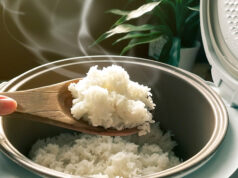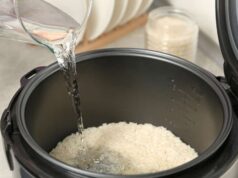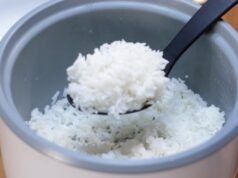Dealing with rice that boils over in your rice cooker can be quite frustrating. Fortunately, there are effective strategies you can follow to ensure that your rice cooker works smoothly without those messy spills. In this article, we will delve into proven methods on how to keep rice cooker from boiling over and also provide tips to improve your overall rice cooking experience.

Understanding the Problem: Why Does Rice Boil Over?
Before we jump into the solutions, it’s important to understand why the rice boils over in the first place. Typically, the problem arises when the water and starch in the cooking rice rise, causing bubbles that overflow the cooker. It can be a result of using too much water or starch, or simply the buildup of pressure under the lid of the rice cooker.
Simple Solutions to Prevent Spills in Rice Cookers
Measure the Rice and Water Accurately
One of the most straightforward ways to prevent boiling over is by measuring both the rice and water accurately. Too much water or rice can easily cause the contents to bubble up and escape from the cooker.
Rinse the Rice Before Cooking
Rinsing helps to remove excess starch, which is a common reason for rice boiling over. Rinse the rice under cold water until the water runs clear, ensuring a starch-free cooking process.
Use Oil or Butter for Cooking
Adding a small amount of oil or butter can help reduce bubbling. It creates a barrier on the rice surface that can mitigate the copious formation of starch bubbles.
Enhancing Your Rice Cooking Technique
Adjust Cooker Temperature Settings
Some modern rice cookers come with adjustable temperature settings. Lowering the heat slightly can prevent vigorous boiling and reduce the risk of rice bubbling over.
Use a Larger Cooker for Increased Capacity
If you’re consistently cooking large quantities, consider using a rice cooker with a bigger capacity. This reduces the chances of overflow as there’s simply more room for the rice and water to cook.
Add Cooking Utensils
Placing a wooden spoon across the top of a rice cooker can help absorb extra moisture, a traditional method that helps in minimizing spills.
Advanced Tips for Flawless Rice Cooking
Chemical-Free Cooking to Reduce Foaming
Opt for chemical-free rice varieties that tend to produce less foam when cooked, keeping your rice cooker clean and efficient.
Utilizing a Steamer Basket
Utilize the steam function in your cooker, if available, by incorporating a steamer basket. This method lets your rice cook over steam, reducing direct heat and thus decreasing bubbling.
Maintaining Your Rice Cooker for Better Results
Clean Your Cooker Regularly
Proper maintenance and cleaning ensure your rice cooker functions at its best. Residual starch from previous cooking can increase the likelihood of boiling over.
Inspect Your Pressure Relief Valve
Ensure that the pressure release valve is not blocked. It’s crucial for managing pressure within the cooker to prevent boiling over.
Common Misconceptions about Rice Cookers
There’s often a misconception that faulty rice cookers are the main culprits behind rice bubbling over. In reality, cooking habits and rice types play a more significant role.
Conclusion: Enjoy Perfectly Cooked Rice Every Time
Mastering how to keep rice cooker from boiling over involves a combination of precise measurements, adapting cooking methods, and maintaining your cooker. With these tips in hand, you can say goodbye to messy spills and enjoy delicious rice every time.

Frequently Asked Questions
Does rinsing rice really make a difference?
Yes. Rinsing rice removes excess starch, which can cause it to foam and bubble over when cooked.
How much water should I use for cooking rice?
This depends on the type of rice. Generally, use a ratio of 1 cup of rice to 1.5 or 2 cups of water depending on the rice variety.
Can adding oil prevent my rice from boiling over?
Yes, adding a small amount of oil or butter can significantly reduce the bubbling of starches, thus preventing spills.
For more tips on using rice cookers effectively, you can visit Broccoli Cooking Time and Rice Steamer Guide. For a comprehensive understanding of rice cookers, you may also visit this external guide.
This article contains affiliate links. We may earn a commission at no extra cost to you.











